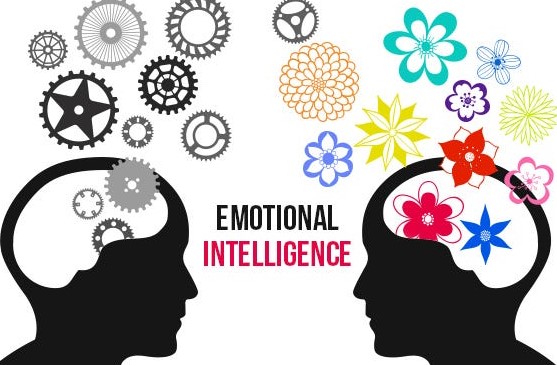Transgender Journeys: Powerful Stories of Identity, Acceptance, and Transformation
Introduction
Transgender journeys are deeply personal and transformative experiences that shape the lives of countless individuals. Each story is unique, filled with moments of challenge, triumph, identity, and acceptance. Sharing these narratives not only creates a sense of community but also fosters understanding among those who may be unfamiliar with the nuances of gender identity.
The importance of amplifying Transgender Journeys voices cannot be overstated. These stories empower others to embrace their authentic selves while shedding light on the complexities surrounding gender dysphoria and societal expectations. As we explore this rich tapestry of experiences, we invite you to embark on a journey through powerful accounts that reveal resilience in the face of adversity and celebrate the beauty found within diversity.
The Evolution of Language and Terms Used in the Transgender Community
Language is dynamic. It evolves with society’s understanding of identity and culture. In the transgender community, terms have shifted significantly over time.
Once, labels were limited to binary definitions: male and female. Today, a spectrum exists that acknowledges non-binary identities, genderqueer expressions, and more. This reflects a broader acceptance of diverse experiences.
Terms like “gender dysphoria” have gained prominence as individuals share their struggles with societal expectations versus personal truth. Meanwhile, words such as “transition” now encompass various paths—socially, medically, or legally.
The importance of language cannot be overstated; it shapes perceptions and fosters connection within the community. As people embrace their authentic selves, they also redefine how we communicate about gender identity.
Continual dialogue around these changes encourages awareness and respect for each individual’s journey. Embracing new terminology can pave the way for deeper understanding in society at large.
Personal Stories of Transgender Individuals and Their Experiences with Gender Identity
Each transgender journeys is unique, filled with rich narratives of self-discovery and courage. For many, the path to understanding their gender identity begins in childhood. Some feel an intrinsic disconnect between how they perceive themselves and how society sees them.
Take Alex, who vividly recalls staring into a mirror at age eight, yearning for a reflection that felt true. His admission came after years of silent struggle; it was both liberating and terrifying.
Then there’s Mia, whose transition blossomed during her college years. Surrounded by supportive friends, she found the strength to embrace her authentic self—an experience that reshaped her relationships profoundly.
These stories reveal resilience against societal norms. Each voice highlights not just challenges but also moments of joy when acceptance blooms from within or around them. They remind us that every narrative adds depth to our collective understanding of gender identity and expression.
Challenges Faced by Transgender Individuals in Society
Transgender Journeys individuals often encounter numerous challenges that can impact their daily lives. Discrimination remains a significant barrier, affecting access to employment, healthcare, and housing. Many face prejudice simply due to their identity.
Social acceptance is another hurdle. Family rejection or lack of support from friends can lead to feelings of isolation. This emotional toll makes it even harder for many to express themselves authentically.
Moreover, navigating public spaces can be fraught with anxiety. Fear of harassment or violence often looms large when seeking basic rights like using the restroom.
Mental health issues also plague the community at high rates due to these societal pressures. The combination of stigma and misunderstanding creates an environment where many feel they must fight relentlessly for recognition and respect in everyday interactions.
The Impact of Support and Acceptance on Transgender Journeys
Support and acceptance can be transformative for transgender individuals. When loved ones embrace a person’s true identity, it cultivates a safe space for exploration and growth.
Having allies in one’s corner often leads to increased self-esteem. Knowing that others see and validate their authentic selves encourages many to live freely. This sense of belonging is crucial during a time of change.
Communities play an essential role too. Support groups offer shared experiences, reducing feelings of isolation. Here, individuals find strength in connection; they learn from each other’s journeys.
Workplaces also benefit from inclusive policies. Acceptance fosters productivity and creativity while minimizing stressors related to gender identity.
The ripple effect extends beyond the individual as families grow stronger through understanding, creating environments rich with love and authenticity. Each act of support contributes positively to the broader society, paving pathways toward equality.
Resources for Those on a Transgender Journey
Navigating a transgender journey can be complex, but resources are available to provide support and guidance. Online platforms like forums and social media groups allow individuals to connect with others who share similar experiences.
Organizations such as the Human Rights Campaign and GLAAD offer valuable information on rights, advocacy, and health care tailored for the transgender community. They also provide toolkits that educate allies on how to foster inclusivity.
Local LGBTQ+ centers often have programs dedicated specifically to transgender issues. These spaces create opportunities for face-to-face support through workshops, counseling, or peer networks.
Books and documentaries about transgender lives can enhance understanding while offering representation. Libraries frequently carry titles that reflect diverse narratives within the community.
Mental health professionals specializing in gender identity are crucial resources. Their expertise helps individuals navigate emotional challenges during their transitions.
Conclusion: The Power of Embracing Diversity and Celebrating Individual J
Embracing diversity is more than just a mantra; it’s an essential part of creating inclusive communities. Each transgender journey tells a unique story—filled with struggles, triumphs, and profound moments of self-discovery.
Celebrating individual identities fosters understanding and compassion. It opens doors to meaningful conversations that challenge stereotypes and break down barriers.
When we uplift each other, we cultivate a culture where everyone feels valued. This leads to greater acceptance not only within the LGBTQ+ community but across society as a whole.
Recognizing the power in different narratives encourages empathy. Every person brings their own experiences to the table, enriching our collective understanding of humanity.
As we continue to share stories and support one another, we pave the way for future generations to live authentically without fear or shame.
FAQs
What does it mean to be transgender?
Being transgender means that an individual’s gender identity differs from the sex they were assigned at birth. This can involve transitioning socially, medically, or legally to align with their true gender identity.
How can I support a transgender friend or loved one?
Supporting a transgender person involves listening without judgment, using their correct pronouns, educating yourself about their experiences, and advocating for their rights. Creating a safe and accepting environment is crucial.
What are common challenges faced by transgender individuals?
Transgender people often face discrimination, social stigma, mental health challenges due to lack of acceptance, and barriers in accessing appropriate healthcare. These challenges can impact various aspects of their lives, including employment, housing, and personal relationships.
Are there specific resources available for those on a transgender journey?
Yes, there are many resources available. Organizations like PFLAG and local LGBTQ+ centers offer support networks, counseling services, and community connections. Online platforms and social media groups also provide valuable information and peer support.
Is it ever too late to transition?
No, it is never too late to transition. Transitioning is a deeply personal journey that can happen at any age. The right time to transition is when an individual feels ready and confident to take that step towards living their authentic self.







